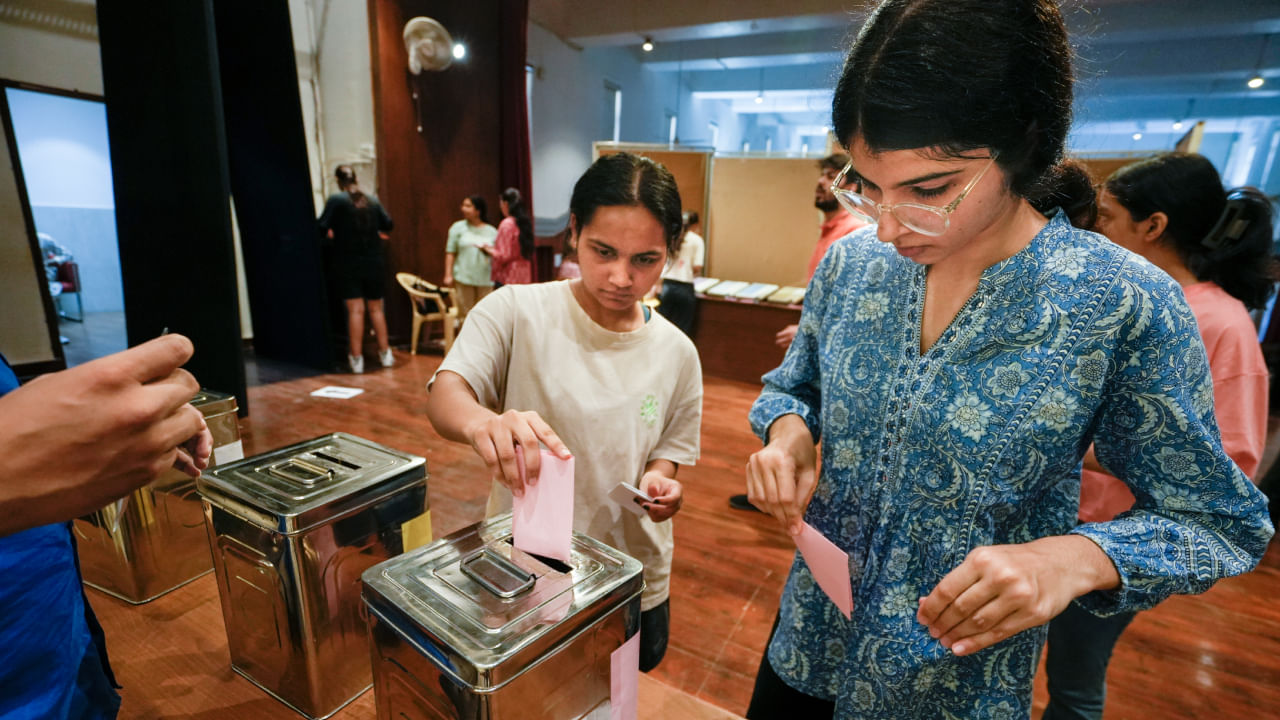New Delhi: As the University of Delhi (DU) prepares for its annual Student Union elections on September 18, campus political activity has intensified, marking a notable shift towards increased female representation and issue-focused activism. This year, both the National Students’ Union of India (NSUI) and the Left-leaning alliance have chosen women to contest the prestigious president’s post, marking a historic departure in a university where the role has been exclusively held by men since 2008.
The Akhil Bharatiya Vidyarthi Parishad (ABVP) has put forward Aryan Mann, an MA Library Science student and Hansraj College graduate, for the presidency. His panel features Govind Tanwar as vice president, Kunal Chaudhary as secretary, and Deepika Jha, a Buddhist Studies student from Lakshmibai College, as joint secretary.
Meanwhile, the NSUI has nominated 23-year-old Joslyn Nandita Choudhary, a current MA student in Buddhist Studies, as its presidential candidate. Choudhary has been an active voice on campus since 2019. Her team includes Rahul Jhansla, 24, as vice president; Kabir, 24, representing Law Centre II as secretary; and 19-year-old Lavkush Bhadana from Zakir Husain College as joint secretary.
Left coalition aims to present itself as voice for ordinary students
The Left alliance, comprising the Students’ Federation of India (SFI) and the All India Students’ Association (AISA), has also fielded a female candidate, Anjali from Indraprastha College for Women. The coalition aims to present itself as a voice for ordinary students, challenging the traditional dominance of money, muscle power, and coercion in campus politics.
She will be supported by Sohan Kumar as vice president, Abhinandana Pratyashi as secretary, and Abhishek Kumar as joint secretary.
DUSU election & result dates
Candidates were permitted to withdraw their nominations until Thursday noon, after which the final list was released. Voting is scheduled for September 18, with results expected the following day. Political analysts note that this year’s elections demonstrate a more diverse and issue-oriented campus landscape, with female leaders poised to take centre stage for the first time in over a decade.
